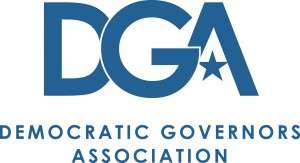Democratic Governors Speak Out Against RAWA
US Representative Jason Chaffetz (R – Utah) and US Senator Lindsey Graham (R – S.C.) have got to be feeling the squeeze by now. Official opposition to their (*cough* Sheldon Adelson’s *cough*) anti-online poker bill continues to grow. This time, it is the Democratic Governors Association (DGA) that has come out against the horribly named Restoration of America’s Wire Act (RAWA).
The DGA wrote a letter this week to Speaker of the House John Boehner (R – OH), House Minority Leader Nancy Pelosi (D – Cali.), Senate Majority Leader Mitch McConnell (R – Kent.), and Senate Minority Leader Harry Reid (D – Nev.) informing them of their distaste for H.R. 707. In the letter, Montana Governor Steve Bullock, who serves as the Chair of the DGA, and New Hampshire Governor Maggie Wood Hassan, Vice Chair of the DGA, explain that the decision to allow online gaming is best left to the states, who could both properly monitor it and use it as a source of revenue. Other than expressing their opposition, they do not tell the Congressional leaders to take any specific action – they simply say that it is best to preserve states’ rights.
 The Democratic Governors Association was formed in 1983 to “support Democratic governors and candidates across the nation.” In particular, the DGA assists candidates in elections and provides policy expertise. It is a voluntary organization, but all 18 Democratic state governors are members, as well as the governors of the U.S. territories of Puerto Rico and the U.S. Virgin Islands.
The Democratic Governors Association was formed in 1983 to “support Democratic governors and candidates across the nation.” In particular, the DGA assists candidates in elections and provides policy expertise. It is a voluntary organization, but all 18 Democratic state governors are members, as well as the governors of the U.S. territories of Puerto Rico and the U.S. Virgin Islands.
A hearing to discuss RAWA will be held by the House Subcommittee on Crime, Terrorism, Homeland Security on March 26th, rescheduled from March 5th. Rep. Chaffetz is on the committee (of course), as are a number of anti-online poker Representatives. The Poker Players Alliance (PPA) has setup a web page to assist poker supporters in contacting the members of the committee, complete with phone numbers and pre-filled tweets.
The Restoration of America’s Wire Act is a bill written by Las Vegas Sands CEO Sheldon Adelson and his people in an effort to shut down online gambling in the United States. Its name makes no sense, though, as it “restores” nothing, but rather re-writes online gambling laws. The original Wire Act, written more than five decades ago, prohibited sports betting over wire communications. When internet gambling began its rise in the 1990’s, the Department of Justice interpreted the Wire Act to include all forms of gambling over the internet. The Unlawful Internet Gambling Enforcement Act of 2006, despite making financial transactions to and from gambling sites illegal, did permit individual states to make online gambling legal within their borders. In late 2011, the DoJ clarified its stance on the Wire Act, confirming that it only applied to sports betting, opening the doors for states to go ahead and start their own internet gambling regimes.
Sheldon Adelson was pissed off to no end over that clarification and now wants the interpretation of the Wire Act rolled back to the incorrect one from before late 2011. That’s where the “restoration” comes from. Problem is (amongst many), RAWA would actually cement the incorrect interpretation into law, making online gambling completely illegal in the United States. The three states who currently have online gambling sites up and running – Nevada, New Jersey, and Delaware – would have to shut it all down.
Though the primary supporters of RAWA are Republicans, the bill has already received plenty of criticism from conservatives, who rightfully believe that RAWA flies in the face of states’ rights. Now we have a significant Democratic organization attacking the bill, as well. What it all means is uncertain at this point, but it is obviously better to see groups come out against RAWA than cheer for it.
The complete text of the DGA letter is below.
Dear Senators McConnell and Reid, Speaker Boehner and Leader Pelosi,
On behalf of the Democratic Governors Association, we are writing to express our opposition to the “Restoration of America’s Wire Act 2015,” as introduced by Representative Jason Chaffetz (R-UT).
We believe strongly that the issue of Internet gaming, as has historically been the case with other forms of gaming, is best left to the states to decide and regulate. This approach is consistent with the congressional intent related to online gaming as stated in the “Unlawful Internet Gambling Enforcement Act of 2006,” decades after the Wire Act was enacted.
State legislators, working in tandem with governors and executive branch agencies, are best positioned to decide if and how online gaming works in their communities. Furthermore, a well-regulated online gaming industry could provide a significant revenue source for state governments while allowing our law enforcement agencies to better deter and prosecute dangerous criminal activity – including fraud, money laundering and terrorist financing.
As you consider the issue of Internet gaming, we hope you give strong consideration to the importance of preserving these state rights and the opportunity that embracing a state-by-state regulatory approach could provide.



















COMMENTS